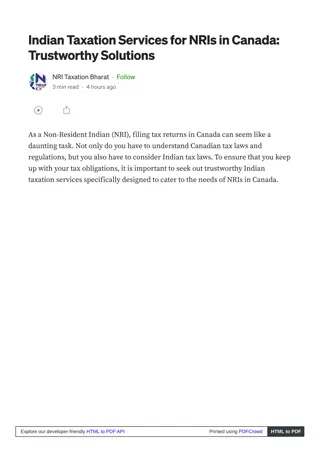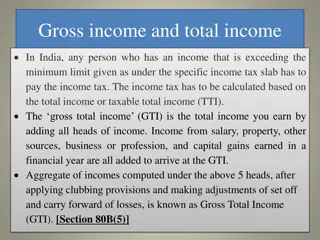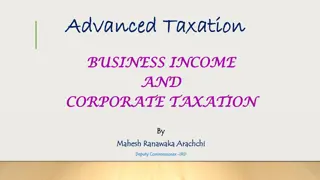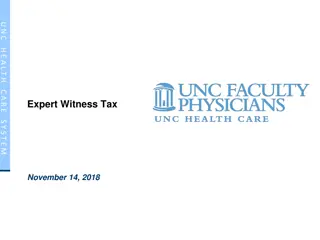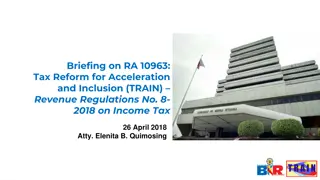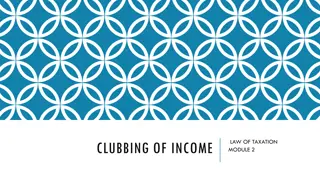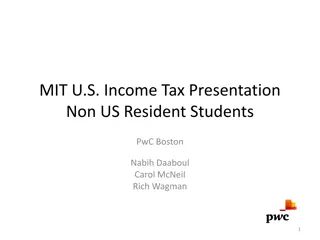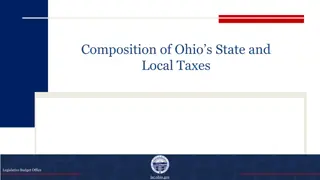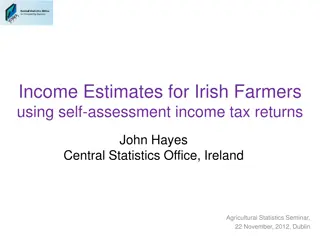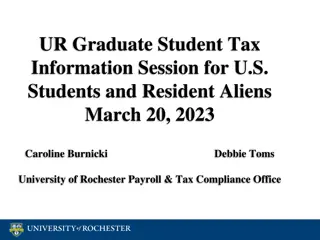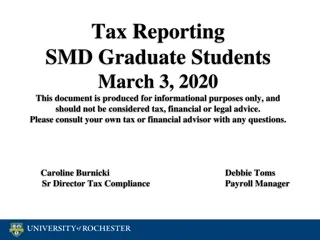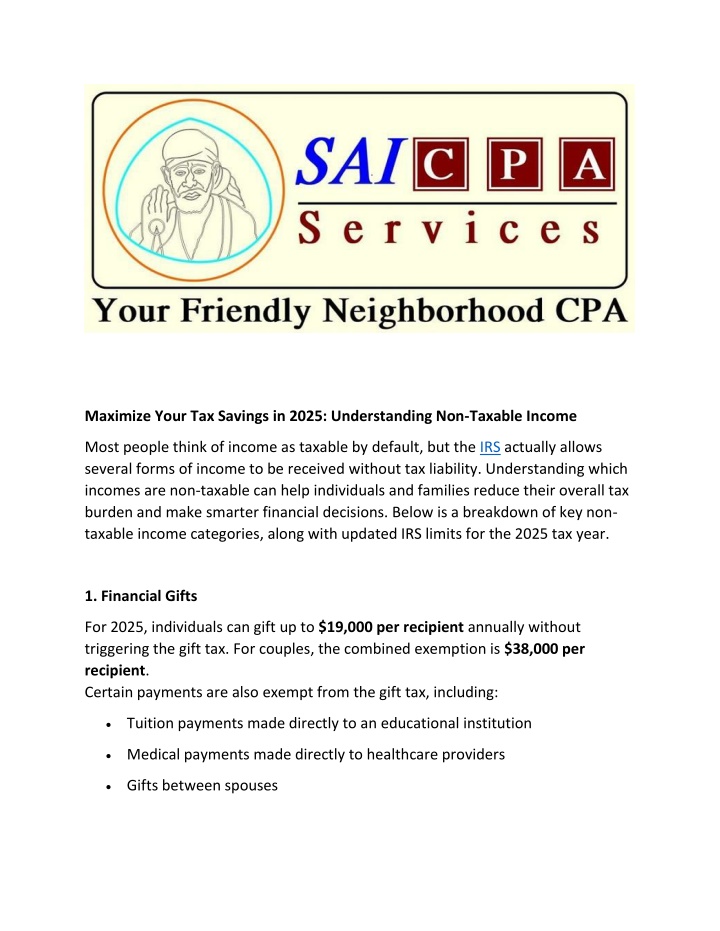
Maximize Your Tax Savings in 2025 Understanding Non-Taxable Income
Most people think of income as taxable by default, but the IRS actually allows several forms of income to be received without tax liability.
Uploaded on | 7 Views
Download Presentation

Please find below an Image/Link to download the presentation.
The content on the website is provided AS IS for your information and personal use only. It may not be sold, licensed, or shared on other websites without obtaining consent from the author. If you encounter any issues during the download, it is possible that the publisher has removed the file from their server.
You are allowed to download the files provided on this website for personal or commercial use, subject to the condition that they are used lawfully. All files are the property of their respective owners.
The content on the website is provided AS IS for your information and personal use only. It may not be sold, licensed, or shared on other websites without obtaining consent from the author.
E N D
Presentation Transcript
Maximize Your Tax Savings in 2025: Understanding Non-Taxable Income Most people think of income as taxable by default, but the IRS actually allows several forms of income to be received without tax liability. Understanding which incomes are non-taxable can help individuals and families reduce their overall tax burden and make smarter financial decisions. Below is a breakdown of key non- taxable income categories, along with updated IRS limits for the 2025 tax year. 1. Financial Gifts For 2025, individuals can gift up to $19,000 per recipient annually without triggering the gift tax. For couples, the combined exemption is $38,000 per recipient. Certain payments are also exempt from the gift tax, including: Tuition payments made directly to an educational institution Medical payments made directly to healthcare providers Gifts between spouses
2. Inheritances Inheritances whether in the form of cash, property, or other assets are not subject to income tax. However, any income generated from inherited assets (e.g., rental income, dividends, or interest) is considered taxable. For estate taxes, the exemption in 2025 is: $13.99 million per individual $27.98 million for married couples 3. Life Insurance Payouts Life insurance proceeds paid as a lump sum upon the death of the insured are not taxable. For employer-sponsored life insurance plans, coverage up to $50,000 is excluded from taxable income. Any coverage beyond that amount may be considered a taxable benefit. 4. Qualified Roth IRA Distributions Withdrawals from a Roth IRA are tax-free if: The account has been open for at least 5 years, and The account holder is 59 or older Certain early withdrawals are also exempt from taxes and penalties, including: Up to $10,000 for a first-time home purchase Qualified education and medical expenses 5. Scholarships and Fellowships Scholarship and fellowship funds are non-taxable when used for: Tuition Fees
Course-related materials However, funds used for room, board, or personal expenses are generally considered taxable income. 6. Long-Term Care Insurance Benefits Payments from qualified long-term care insurance policies are tax-exempt when used for eligible services such as: Nursing home care Assisted living In-home medical support The IRS daily limit for 2025 is $420 for tax-free reimbursements. 7. Health Savings Accounts (HSA) Health Savings Accounts offer three tax advantages: Tax-deductible contributions Tax-free growth Tax-free withdrawals for qualified medical expenses Contribution limits for 2025 are: $4,300 for individuals $8,550 for families Funds roll over annually and can be used in future years. 8. Adoption Assistance Employer reimbursements for adoption-related expenses are not taxable up to $16,810 per child in 2025. This can include:
Legal fees Court costs Travel expenses for adoption-related purposes Final Thoughts Recognizing what types of income are not taxed can help reduce your tax liability and support more effective financial planning. While these general rules apply broadly, individuals should consider their unique situations and consult with tax professionals to stay compliant with evolving IRS regulations.


